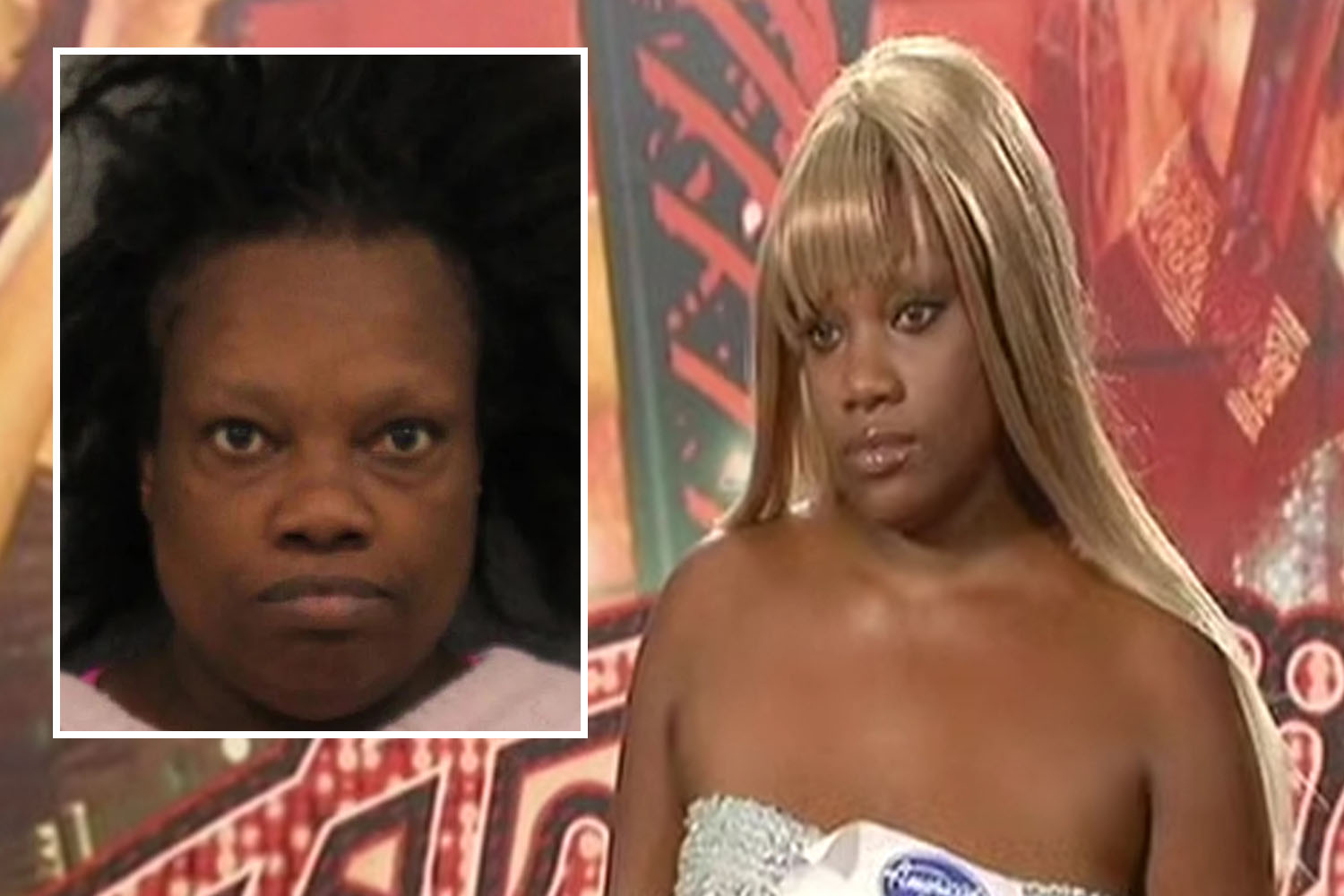American Idol’s Rhonetta Johnson looks disheveled in mugshot after arrest for prostitution 20 years after stint on show

American Idol alum Rhonetta Johnson appears worse for wear in a new mugshot linked to an arrest for prostitution years after appearing on the hit talent show.
Johnson, now 44, became a viral sensation after a disastrous audition during American Idol’s Season 5 in 2006, when she had a fiery clash with judge Paula Abdul.
The U.S. Sun can exclusively reveal she was taken into custody at the end of January after skipping previous court dates.
She was booked in North Carolina’s Mecklenburg County after an outstanding order for arrest tied to a long-running prostitution case was finally served at the courthouse.
She was issued multiple release orders, had a public defender appointed, and was placed on a $2,500 unsecured bond, which was later posted.
The arrest traces back to a separate prostitution case filed in 2018, which dragged on for years after Johnson repeatedly failed to appear in court.
Johnson was caught on October 4 in an undercover sting at a massage parlor that led to multiple prostitution arrests in Charlotte, according to charlottealertsnews.com.
Officers found her at the Continental Inn on West Sugar Creek Road, where she allegedly agreed to have sex with an undercover officer for $35, cops said.
During the encounter, Johnson reportedly made a spontaneous statement admitting she had a crack pipe, which officers later found in her bag, leading to an additional charge, the outlet reported.
The charge was later dropped, and only the prostitution charge was filed.
Following her initial arrest, Johnson repeatedly missed court appearances, prompting several warrants, and she was taken into custody and released multiple times in 2019 on secured bonds reaching $2,000.
Despite the drawn-out proceedings, prosecutors ultimately dismissed the prostitution charge with leave in February 2020, formally ending the case, though unresolved paperwork allowed it to resurface years later.
LONG RAP SHEET
Johnson’s legal troubles date back even further.
In June last year, the Columbus Police Department also issued a missing persons plea after she reportedly disappeared.
A post on Facebook shows they later updated followers, saying she had been located in “good health.”
In 2012, she was cited for possessing up to half an ounce of marijuana and charged with soliciting for prostitution, court filings show.
After failing to appear in court multiple times, she was finally arrested in August 2014.
The case was resolved the following month when she pleaded guilty to the marijuana charge and was sentenced to 27 days in jail, all credited as time already served, while the prostitution charge was dismissed.
Court records later show she was hit with $170 in attorney-fee judgments, which remained unpaid and were flagged for state debt collection in July 2025.
The U.S. Sun can also confirm she has had multiple run-ins with the law dating back as far as the 1990s, before her time on the show.
WILD CONTESTANT
Johnson first grabbed attention as a contestant in 2006, auditioning in Greensboro, North Carolina.
She didn’t make it to the Hollywood rounds, but her audition became infamous, not for her singing, but for her reaction after being rejected by the judges.
Johnson lashed out at Abdul, claiming she could be “bigger” than stars like JLo, Janet Jackson and Mariah Carey, and even refused Abdul’s offer of water, mocking the judge on camera.
Clips of the audition went viral, earning Johnson a spot in reality TV lore and even a humorous mention during that season’s finale.
She never launched a mainstream music career, though she did release a self-produced remix EP in 2014.
